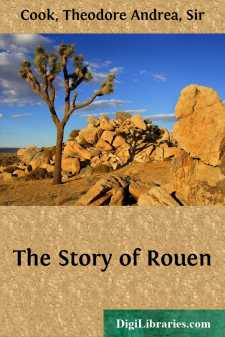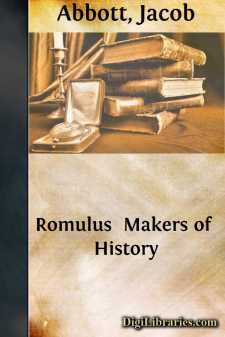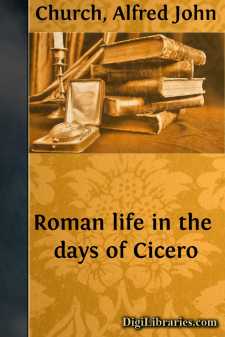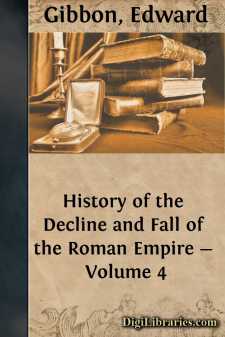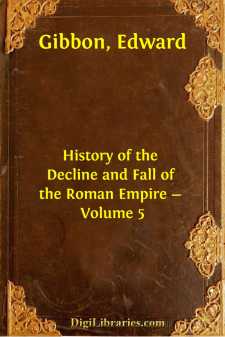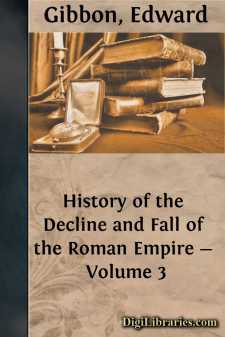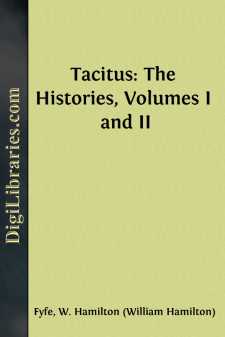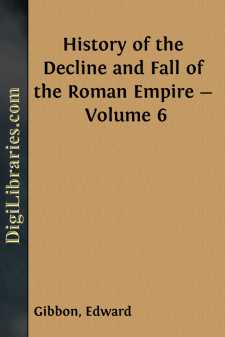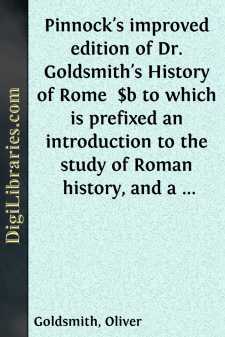History
- Africa 30
- Americas (North Central South West Indies) 50
- Ancient 68
- Asia 58
- Australia & New Zealand 8
- Canada 41
- Caribbean & West Indies 1
- Civilization 20
- Eastern Europe 12
- Europe 310
- Expeditions & Discoveries 60
- General 77
- Historical Geography 1
- Jewish 9
- Latin America 3
- Medieval 8
- Middle East 13
- Military 248
- Revolutionary 8
- Study & Teaching 5
- United States 353
- Western Europe 56
- World 13
History Books
Sort by:
"Est enim benignum et plenum ingenui pudoris fateri per quos profeceris." THE story of a town must differ from the history of a nation in that it is concerned not with large issues but with familiar and domestic details. A nation has no individuality. No single phrase can fairly sum up the characteristics of a people. But a town is like one face picked out of a crowd, a face that shows not...
more...
by:
Jacob Abbott
CADMUS. B.C. 1500Different kinds of greatness.Some men are renowned in history on account of the extraordinary powers and capacities which they exhibited in the course of their career, or the intrinsic greatness of the deeds which they performed. Others, without having really achieved any thing in itself very great or wonderful, have become widely known to mankind by reason of the vast consequences...
more...
CHAPTER I. A ROMAN BOY. A Roman father's first duty to his boy, after lifting him up in his arms in token that he was a true son of the house, was to furnish him with a first name out of the scanty list (just seventeen) to which his choice was limited. This naming was done on the eighth day after birth, and was accompanied with some religious ceremonies, and with a feast to which kinsfolk were...
more...
CHAPTER I. ~~ THE STORY OF ROMULUS AND OF NUMA. Æneas of Troy, coming to the land of Italy, took to wife Lavinia, daughter of King Latinus, and built him a city, which he called Lavinium, after the name of his wife. And, after thirty years, his son Ascanius went forth from Lavinium with much people, and built him a new city, which he called Alba. In this city reigned kings of the house and lineage of...
more...
by:
Edward Gibbon
Chapter XXXIX: Gothic Kingdom Of Italy.—Part I. Zeno And Anastasius, Emperors Of The East.—Birth,Education, And First Exploits Of Theodoric The Ostrogoth.—His Invasion And Conquest Of Italy.—The Gothic Kingdom OfItaly.—State Of The West.—Military And Civil Government.—The Senator Boethius.—Last Acts And Death Of Theodoric. After the fall of the Roman empire in the West, an interval of...
more...
by:
Edward Gibbon
Chapter XLIX: Conquest Of Italy By The Franks.—Part I. Introduction, Worship, And Persecution Of Images.—Revolt OfItaly And Rome.—Temporal Dominion Of The Popes.—ConquestOf Italy By The Franks.—Establishment Of Images.—CharacterAnd Coronation Of Charlemagne.—Restoration And Decay Of TheRoman Empire In The West.—Independence Of Italy.—Constitution Of The Germanic Body. In the...
more...
by:
Edward Gibbon
Chapter XXVII: Civil Wars, Reign Of Theodosius.—Part I. Death Of Gratian.—Ruin Of Arianism.—St. Ambrose.—FirstCivil War, Against Maximus.—Character, Administration, AndPenance Of Theodosius.—Death Of Valentinian II.—SecondCivil War, Against Eugenius.—Death Of Theodosius. The fame of Gratian, before he had accomplished the twentieth year of his age, was equal to that of the most...
more...
INTRODUCTION Tacitus held the consulship under Nerva in the year 97. At this point he closed his public career. He had reached the goal of a politician's ambition and had become known as one of the best speakers of his time, but he seems to have realized that under the Principate politics was a dull farce, and that oratory was of little value in a time of peace and strong government. The rest of...
more...
by:
Edward Gibbon
Chapter LIX: The Crusades.—Part I. Preservation Of The Greek Empire.—Numbers, Passage, AndEvent, Of The Second And Third Crusades.—St. Bernard.—Reign Of Saladin In Egypt And Syria.—His Conquest OfJerusalem.—Naval Crusades.—Richard The First Of England.—Pope Innocent The Third; And The Fourth And Fifth Crusades.—The Emperor Frederic The Second.—Louis The Ninth OfFrance; And The Two...
more...
by:
Oliver Goldsmith
CHAPTER I. GEOGRAPHICAL OUTLINE OF ITALY. Italia! oh, Italia! thou who hastThe fatal gift of beauty, which becameA funeral dower of present woes and past,On thy sweet brow is sorrow plough'd by shame,And annals traced in characters of flame.—Byron. 1. The outline of Italy presents a geographical unity and completeness which naturally would lead us to believe that it was regarded as a whole, and...
more...


